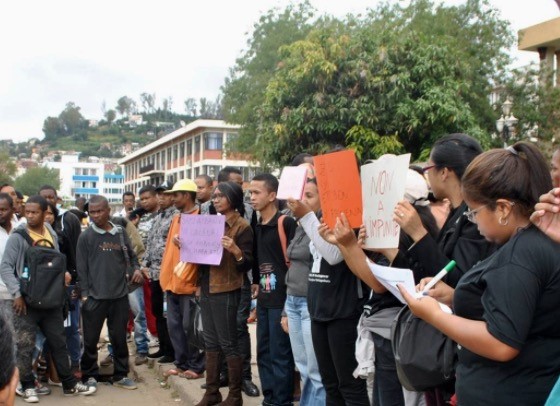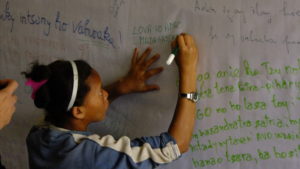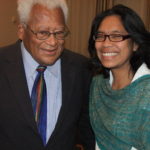Minds of the Movement
An ICNC blog on the people and power of civil resistance
by Ketakandriana RafitosonJuly 14, 2017
There are often misconceptions about the country of Madagascar, thanks in no small part to the animated children’s movie. While my country is not home to talking lions and zebras, it is home to some 25 million people who just a few weeks ago celebrated the 57th anniversary of their country’s independence from French colonial rule. In the wake of these celebrations, I have come to reflect on my journey to becoming engaged in civil resistance to help better the country I call home.
My civil resistance journey is a story about defection—an individual decision to no longer cooperate with an unjust system. Authoritarianism and other manifestations of injustice are nurtured by the willingness of many people to cope with rulers and/or the system those rulers have put in place. Judges, security officers, police, elites and others who find themselves in the ranks of a regime can decide to cut off their loyalty as a nonviolent way to weaken a powerholder’s pillars of support. (Look for instance at what happened in Serbia in 2000 when the military defected from Milosevic’s orders. In combination with other factors, it led to the success of the “Bulldozer revolution” and stopped the dictator’s bloody path.)
Like most in Madagascar, I was born into a poor family. My mom wanted desperately for my younger brother and me to have a better life than she did, always reminding us that only knowledge and hard work could save us. I took her words to heart and, after high school, attended the Catholic university in Madagascar where I studied law and political science.

Wake Up Madagascar street action against corruption, Antananarivo, 2017. Source: Author.
With a strong sympathy for democracy, I chose to pursue a position as an administrative judge, and competed among thousands for one of 10 open spots at the Madagascar Judicial Academy. When we learned I had been accepted, my mother was overwhelmed with pride, anticipating this achievement would be the catalyst for a life of dignity and wealth for me. But it wouldn’t be long until her joy turned to sorrow.
During our two years of training at the Judicial Academy, we spent time working on cases for the bureau of the Prime Minister. Most were simple cases of an individual v. State. But instead of being taught the processes of the judiciary and practicing them with integrity, I soon began to feel the Academy’s purpose was much different: to ensure the State’s victory, whatever the case, regardless of the evidence.
The system was unfair and in direct opposition to almost everything I stood for: enforcing the law, practicing justice, and protecting the most vulnerable among us. I knew what I had to do: quit the Academy.
My mother wept and became physically ill when I told her about the decision I had made, but I know deep inside she was proud of me for engaging in a personal act of civil resistance against an unjust system.

"The Citizens' Wall" for people in the streets to write down their thoughts about the country and the political situation. Source: Author.
Today, outside of my normal day job as a lawyer, I am an active member of Wake Up Madagascar movement which is based in the capital, Antananarivo, but targets all of Madagascar. We aim to awaken people power and to make each and every citizen aware of the fact that she/he has the power to change the situation in our country. We want to put an end to injustice and corruption in our country through nonviolent means, similar to the civil resistance movement that brought unexpected change in Malagasy politics in 2002. To reach our goals, we organize direct actions and demonstrations targeting sources of corruption, bad governance and injustice of any kind. We promote citizens’ expression through activities like the Citizens’ Wall (see image), and organize regular trainings on nonviolent civil resistance, in partnership with international organizations such as ICNC.
Through my engagement, I am convinced of the power of a people who will stand courageously against injustice with the hope that tomorrow could be better. No defection is too small to make a difference, no act of resistance too isolated to bind us in our common goal. I am convinced that victory awaits us, if only we dare to unite and act together.
Featured image (top): Local training on civil resistance strategies and tactics with Wake Up Madagascar, January 25-26, 2017. Source: Author.
SaveSave

Ketakandriana Rafitoson
Ketakandriana Rafitoson is a Malagasy lawyer, political scientist and democracy activist. She also holds Masters degrees in Human Rights and Population and Development, and works with a citizen empowerment group called Wake Up Madagascar. She is a fellow of the ICNC Summer Institute and the ICNC Learning Initiatives Network.
Read More